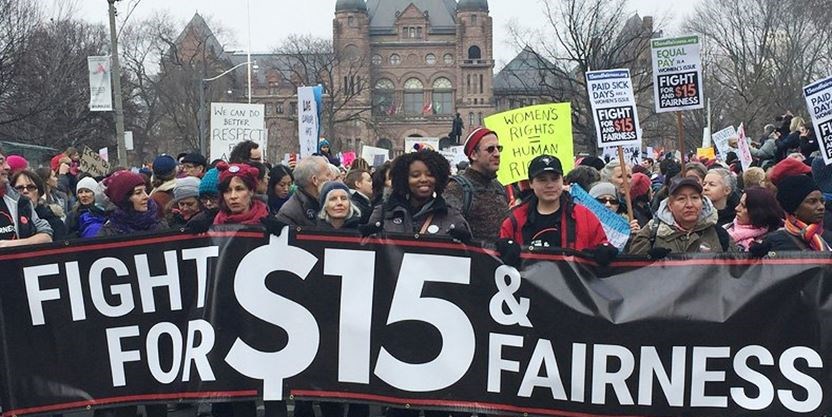After the Fight For $15
The day is the 22nd of November, 2017. The Ontario Liberals have just passed Bill 148, otherwise known as A plan for fair workplaces and better jobs. The Bill proposes (among other things) an increased number of days for sick leave and emergencies, equal pay for full-time, part-time, and temporary workers who do the same tasks, as well as an increase in the provincial minimum wage to $15 by January 1st, 2019. This last point has generated the most media coverage and controversy.
President Harry Truman once famously exclaimed, “Give me a one-handed economist! All my economists say, ‘on one hand … on the other.’” It would seem, then, that even after about seven decades of questioning, the two-handed economists still have not made up their minds, as nobody can agree on what the policy’s effects may be.
On the one hand, some economists posit that the new minimum wage may increase consumer purchasing power. This money flows back into businesses and can then be reinvested. The Liberal government also argues that the minimum wage increase, along with the labour policies that go with it, will increase worker productivity and retention. Businesses will thus have more productive employees and will need to spend less on recruitment and training. Economists predict that people earning low wages wouldn’t be putting much into savings anyway, so an increase in wages directly increases the flow of money into the economy.
On the other hand, other experts say the policy may actually harm the economy. The increase in worker wages may force businesses to adapt by cutting worker hours, laying people off, or ceasing to create new jobs. TD Bank estimates that 80 thousand potential jobs may be lost in this way by 2020. Logically speaking, there would be more unemployed people who earn nothing, thus reducing the flow of money in the economy in anyway. Additional negative effects may accrue to specific segments of the population, with job cuts hitting teenagers and newcomers first.
 Image courtesy of the Mississauga News
Image courtesy of the Mississauga News
Yet I fully support the basic idea behind the policy package: to improve the quality of life for the lowest income brackets in Ontario. In a province where the living wage – the wage necessary to cover the basics of life like housing and food – is anywhere from $14 to almost $19 depending on where you are; people who earned the previous minimum wage of $11.25 per hour often had to work several jobs and still struggle to raise their families or deal with schoolwork. To me, it seems wholly unfair to expect this segment of the population – which comprises about 11.6% of Ontarians – to be happy and healthy when they can barely cover the basic necessities of life. Regardless of whether or not the $15.00 wage is a living wage, the government shows that it is at least willing to listen to people’s demands and attempt to address them. That being said, the policy is still somewhat problematic—not in its ideology, but rather in its execution. In cities across the United States that have implemented a similar $15 minimum wage policy such as New York, Seattle, and Los Angeles, the increase took place gradually over the span of several years. In anticipation of the provincial elections this summer, the Wynne government is going to push the policy into effect over a mere 18 months. Clearly in an attempt to win votes and stabilize its dipping poll results, the government may well sacrifice some of the intended economic benefits for the sake of political expediency, as the quick roll-out period gives businesses little time or space to adapt and could lead to massive job losses. The government has decreased corporate tax rates for small businesses from 4.5% to 3.5% to help relieve the financial burden put on them, however many say this tax cut is not enough to mitigate expected costs to businesses.
While I cannot claim to know how the Ontario economy will react to the policy, I believe the idea is worth a try. In Seattle, two years after a similar policy was implemented, unemployment is down and wages are up according to a study conducted by UC Berkeley. I would only beg of the Ontario government to rethink their ambitious implementation timeframe, or at least the method in which they go about enforcing the policy. If the policy is to reach its full potential, proper time and care must be exercised to allow businesses the room to prepare for the wage increase.
Whether the minimum wage increase will help minimum wage earners and stimulate economic growth, or spell disaster for Ontarian businesses as they struggle to maintain their bottom lines is still a question no one can answer. Given that so many Ontarians struggle to survive off a paltry minimum wage, however, we cannot be satisfied with doing nothing.
